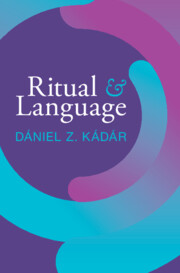Book contents
- Ritual and Language
- Ritual and Language
- Copyright page
- Contents
- Figures
- Tables
- Acknowledgements
- Foreword
- 1 Introduction
- Part I The Language of Ritual: Foundations
- Part II Ritual Frame in Interaction: The Complex Interactional Features of Ritual
- Part III Methodological Issues
- 8 Methodological Take-1A: The Relationship Between Expressions and Ritual
- 9 Methodological Take-1B: The Relationship Between Speech Acts and Ritual
- 10 Methodological Take-2A: Capturing Ritual Practices
- 11 Methodological Take-2B: Describing Ritual Contexts
- 12 Conclusion
- Notes
- References
- Index
10 - Methodological Take-2A: Capturing Ritual Practices
from Part III - Methodological Issues
Published online by Cambridge University Press: 07 March 2024
- Ritual and Language
- Ritual and Language
- Copyright page
- Contents
- Figures
- Tables
- Acknowledgements
- Foreword
- 1 Introduction
- Part I The Language of Ritual: Foundations
- Part II Ritual Frame in Interaction: The Complex Interactional Features of Ritual
- Part III Methodological Issues
- 8 Methodological Take-1A: The Relationship Between Expressions and Ritual
- 9 Methodological Take-1B: The Relationship Between Speech Acts and Ritual
- 10 Methodological Take-2A: Capturing Ritual Practices
- 11 Methodological Take-2B: Describing Ritual Contexts
- 12 Conclusion
- Notes
- References
- Index
Summary
Chapters 10 and 11 provide a solution for the study of interactionally complex ritual phenomena, by systematically breaking them down into replicable pragmatic units of analysis. The complexity of a ritual phenomenon can either mean that a phenomenon is too broad to be discussed as a single ritual, i.e., it represents a form of ritual behaviour which spans across many different ritual contexts, or it represents a particular context and related ritual frame which triggers ritual behaviour but cannot be subsumed under a single ritual heading from the pragmatician’s point of view. Chapter 10 focuses on the first of these cases: it explores the ritual phenomenon of self-denigration in Chinese. Self-denigration occurs in many different contexts of Chinese ritual practices and ceremonies, and if one attempts to describe its pragmatic features by relying on data drawn from a single context one unavoidably risks oversimplifying it. Rather, in the study of such a ritual phenomenon one should consider how it is used in different interpersonal scenarios with varying power and intimacy and in different phases of an interaction.
Keywords
- Type
- Chapter
- Information
- Ritual and Language , pp. 169 - 191Publisher: Cambridge University PressPrint publication year: 2024



